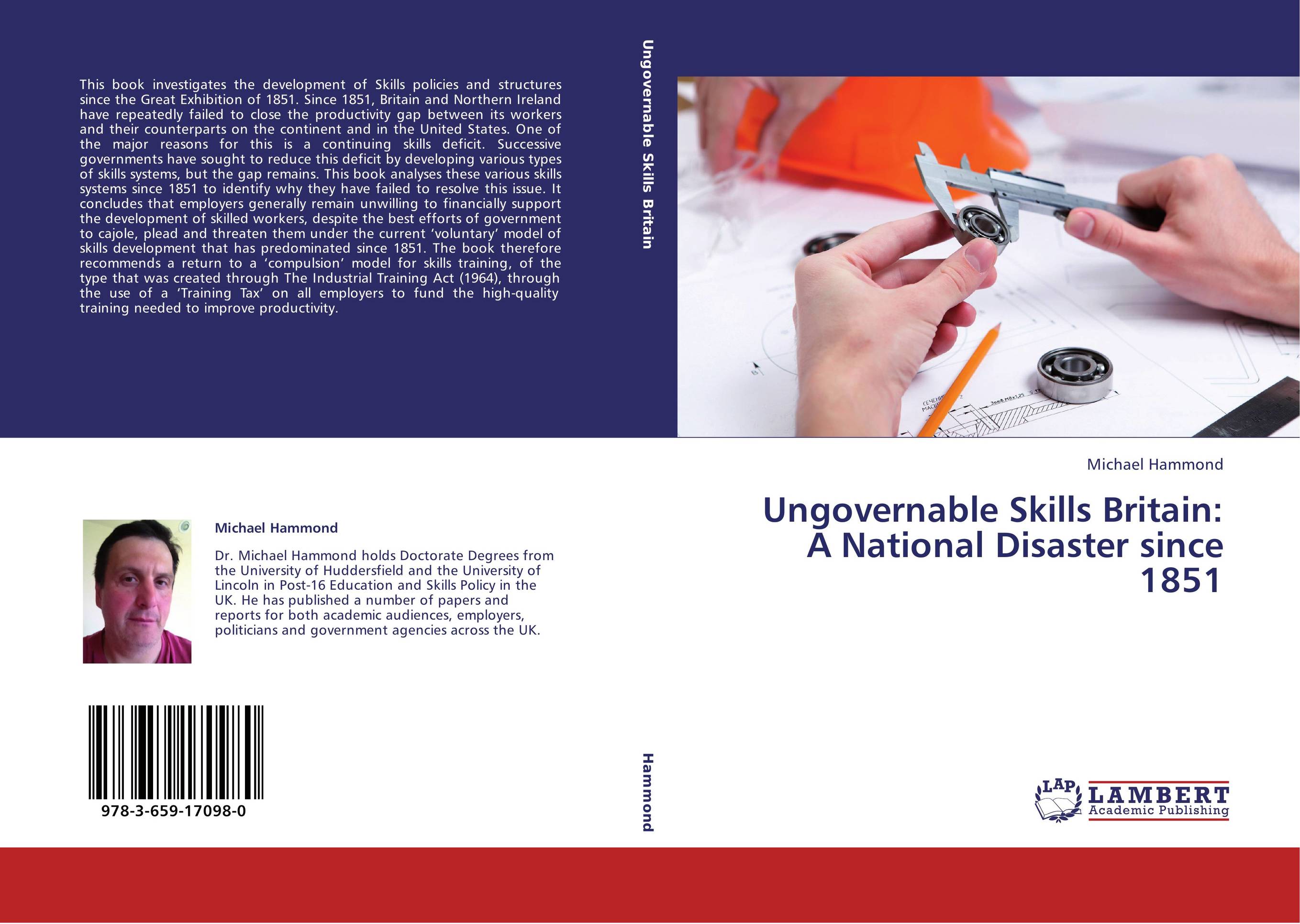| Поиск по каталогу |
|
(строгое соответствие)
|
- Профессиональная
- Научно-популярная
- Художественная
- Публицистика
- Детская
- Искусство
- Хобби, семья, дом
- Спорт
- Путеводители
- Блокноты, тетради, открытки
Ungovernable Skills Britain: A National Disaster since 1851.

В наличии
| Местонахождение: Алматы | Состояние экземпляра: новый |

Бумажная
версия
версия
Автор: Michael Hammond
ISBN: 9783659170980
Год издания: 2013
Формат книги: 60×90/16 (145×215 мм)
Количество страниц: 224
Издательство: LAP LAMBERT Academic Publishing
Цена: 39261 тг
Положить в корзину
| Способы доставки в город Алматы * комплектация (срок до отгрузки) не более 2 рабочих дней |
| Самовывоз из города Алматы (пункты самовывоза партнёра CDEK) |
| Курьерская доставка CDEK из города Москва |
| Доставка Почтой России из города Москва |
Аннотация: This book investigates the development of Skills policies and structures since the Great Exhibition of 1851. Since 1851, Britain and Northern Ireland have repeatedly failed to close the productivity gap between its workers and their counterparts on the continent and in the United States. One of the major reasons for this is a continuing skills deficit. Successive governments have sought to reduce this deficit by developing various types of skills systems, but the gap remains. This book analyses these various skills systems since 1851 to identify why they have failed to resolve this issue. It concludes that employers generally remain unwilling to financially support the development of skilled workers, despite the best efforts of government to cajole, plead and threaten them under the current ‘voluntary’ model of skills development that has predominated since 1851. The book therefore recommends a return to a ‘compulsion’ model for skills training, of the type that was created through The Industrial Training Act (1964), through the use of a ‘Training Tax’ on all employers to fund the high-quality training needed to improve productivity.
Ключевые слова: education policy, skills, Post Compulsory Education, Devolution and Regionalisation, History of Skills Policy



